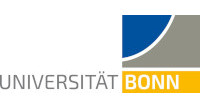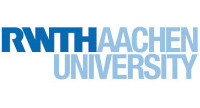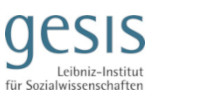Artificial Intelligence,
Social Machines, and the
Future of Democratic Societies
Summer school
September 16th – 20th 2024
University of Bonn/Germany
Application Deadline:
July 15th, 2024
Call for Participation
In times of datafication and the increasing integration of artificial intelligence applications into many areas of society, the debates about human self-determination and technological autonomy can be seen as symptoms of a profound reconfiguration of the relationships between technology, culture, and society. Together we want to explore key issues related to these themes and their consequences for, among others, individuals, institutions, and democracy.
In the course of the ongoing rise of artificial intelligence, digital society unfolds diverse potentials for transforming the relationship between humans and technology. Social robots like Paro, generative language programs (Large Language Models) like ChatGPT, and interactive voice assistant systems (Alexa, Siri) simulate authentic interpersonal interactions, mimic cognitive processes of emotion recognition, present themselves in humanoid forms, and generate evaluative speech and text communication. With the continuously expanding functional spectrum of artificial intelligence, new scenarios are being explored, and algorithmic degrees of freedom beyond human control, surveillance, and intervention are activated and normalized in many areas of society.
The enhanced capabilities of new “social machines” pose serious ethical and political challenges for democracies. Machines are no longer perceived solely within communication processes as media for storing, visualizing, and distributing information, but are conceptualized, utilized, and researched as communication partners. In particular, we need to account for the increasing autonomy of technical artifacts such as robots, voice assistance systems, drones, or so-called autonomous vehicles. What semantics surround their usage? Which are the most crucial and far-reaching implications that different types of autonomous systems have for defense, surveillance, work and care situations as well as for electoral mobilization and political decision making within democratic societies? Are critical methodologies and research perspectives such as “responsible AI” or “platformization”, sufficient to capture the effects of “social machines” on democratic life?
In general, the summer school explores the development of human self-understanding under contemporary technological conditions, the relationship between states and private actors, and specific scenarios of human-technology interaction in medicine, music, art, and politics that confront us with a complicated landscape of risks and constantly evolving challenges for regulation but also with an underexplored variety of chances for creating a better future and enhancing the resilience and vitality of democracies.
Cooperative Summer school
The Universities of Bonn and the Technical University of Aachen (RWTH) in collaboration with distinguished professionals, international scholars, and researchers from Europe and the United States, invite you to participate in an in-depth Summer School on “Artificial Intelligence, Social Machines and the Future of Democracy”. This 5-day program is organized to provide individuals and organizations with the knowledge, skills, and practical understanding necessary to address the intricate issues surrounding AI and the future of human-machine relations and democratic governance structures.
This Summer School intends to bring together a variety of disciplines, such as
- philosophy
- media studies
- political science/international relations
- information science
- science and technology studies
- technology and innovation management
- robotics
- psychology
One afternoon will be dedicated to a practical workshop at University of Bonn’s ‘Human Robot Lab’ to offer a hands-on perspective on robot research.
The Summer School is open for a total of 30 PhD, MA, M.Sc candidates with different disciplinary backgrounds. Participants are offered (1) extensive training in discussing current research problems following keynote presentations and in small-group workshops, (2) the opportunity to network with other students and leading scholars, and (3) an inspiring environment to present and discuss their own research work.
Keynote Speakers:
Bauckhage, PhD, Professor of Computer Science (Pattern Recognition), Lead Scientist for Machine Learning at Fraunhofer IAIS, co-director of The Lamarr Institute for Machine Learning and Artificial Intelligence, University of Bonn (Germany).
André Cramer (DT/German Telekom): Innovation Strategy, Strategic Communications and Tech Ethics Advocacy, member of the AI competence Team of the German Telekom.
Autumn Edwards, PhD, Professor, School of Communication; Editor-in-Chief of the Human-Machine Communication Journal, Western Michigan University (USA). Co-editor of the «DeGruyter Handbook of Robots in Society and Culture» (to appear 2024)
Chad Edwards, PhD, Professor of Communication, Co-Director of the Communication and Social Robotics Labs; Associate Editor of the Human-Machine Communication Journal, Western Michigan University, USA
Gabriele Gramelsberger, PhD, Professor for Theory of Science and Technology. Co-Head of the Human Technology Center at RWTH Aachen, Director of the Kate Hamburger Kolleg "Cultures of Research", RWTH Aachen (Germany).
Application
To apply, MA and PhD students are asked to submit an abstract of 300 words detailing their own research and a short CV. Selection of participants based on following criteria: thematic fit, originality, interdisciplinary approach. Accepted abstracts will be presented in a high-density session including a short presentation and a poster. Please submit your application via email (see below) until July 15th, 2024.
Students are invited to submit a letter of motivation, which outlines their interest, background and study programm. (Possible) further projcts are optional.
Program
The Summer School will include daily keynote lectures, and practical and theoretical workshops on related topics. Further details will be published soon.
Dates
Application Deadline: July 15th, 2024
Acceptance Notification: July 29th, 2024
Summer School: September 16th - 20th, 2024
Contact address for abstracts:
Anna Maria Böhmer (anboehm@uni-bonn.de)
University of Bonn
Lennéstraße 6
53113 Bonn/Germany
Fees
Participation at the Summer School will be free. Costs for travel and accommodation will not be covered.
Organizing Team
University of Bonn
Secretary: Dagmar Ogon (ogon@uni-bonn.de)
Prof. Dr. Caja Thimm (Thimm@uni-bonn.de)
Prof. Dr. Maximilian Mayer (maximilian.mayer@uni-bonn.de)
Services



